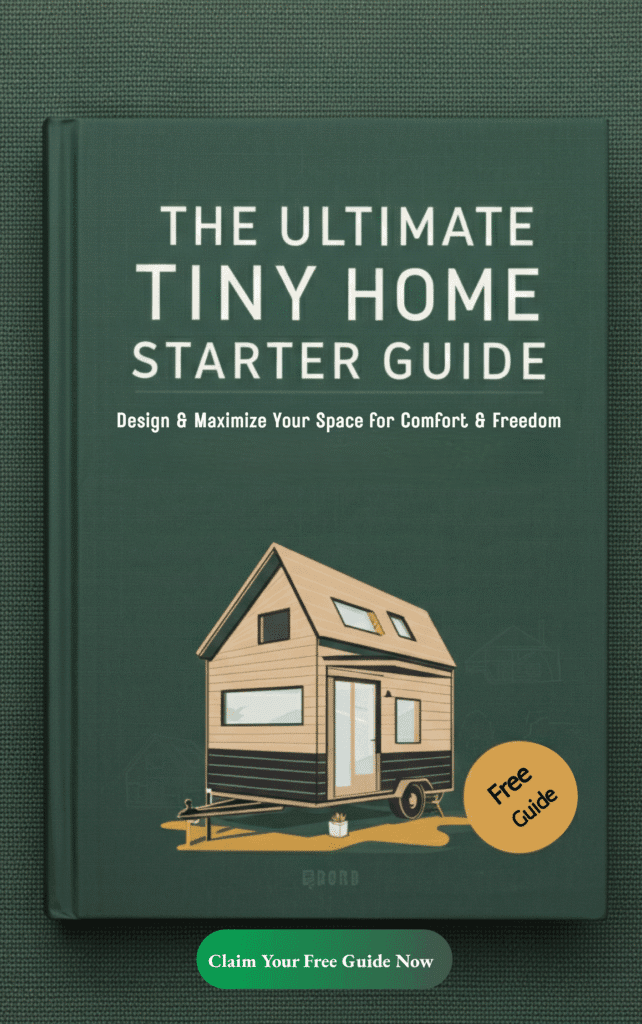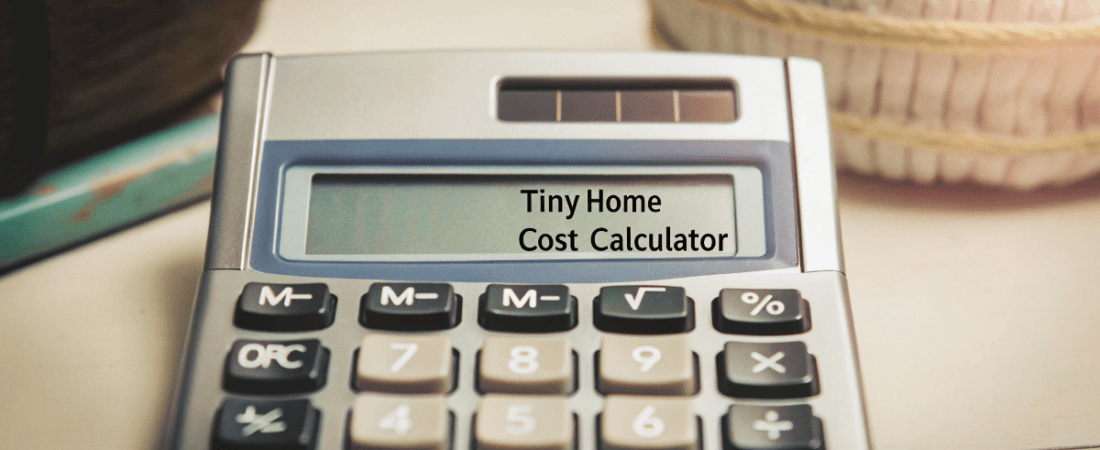Are you trying to budget for your tiny home but not sure where to start? The tiny home cost calculator might be the tool you need.
Tiny homes may look simple, but the costs can pile up fast. From materials to labor, every decision impacts your budget. That’s why planning ahead is crucial.
The average cost of building a tiny house typically ranges from $10,000 to $150,000, depending on factors such as size, customization, materials, and location. Tiny house sizes vary, with the average being around 300 square feet. Homes under 100 square feet are on the smaller end, while anything over 600 square feet is generally too large to be considered a tiny home, impacting the overall cost. Additionally, the average cost per square foot of a tiny home is about $150, but can go up to $400 depending on materials and design.
To make it easier, here’s your go-to guide on the main costs to consider. We’ll break it all down—simple, clear, and practical.
- 1. Introduction to Tiny Homes
- 1. Understanding Tiny House Costs
- 3. Types of Tiny Houses
- 1. Base Tiny Home Price
- 2. Trailer Costs
- 3. Materials for Construction
- 4. Labor Costs
- 5. Appliances and Utilities
- 6. Land and Parking
- 7. Transportation Costs
- 8. Interior Decorating
- 12. Customization and Design
- 10. Financing Your Tiny House
- 9. Taxes and Legal Fees
- 10. Maintenance Costs
- Bonus Tip: Plan for the Unexpected
1. Introduction to Tiny Homes
Tiny homes have become increasingly popular due to their minimalist and affordable nature. The tiny house movement has led many people to seek a simpler, more sustainable lifestyle by downsizing their living spaces. The cost of a tiny house can vary widely, influenced by factors such as size, materials, and location. On average, the national average cost of a tiny home ranges between $28,405 and $85,985. However, prices can span from as low as $9,500 for a basic prefabricated tiny house to as high as $258,000 for a 600-square-foot tiny home with top-of-the-line amenities. In this article, we will explore the various factors that affect tiny house costs and provide guidance on how to build or buy a tiny home that fits your budget and lifestyle.
1. Understanding Tiny House Costs

– What is a Tiny House and How Is It Different from a Traditional Home?
A tiny house is a compact, portable dwelling designed for simple and efficient living. Unlike traditional homes, tiny houses prioritize minimalism, mobility, and sustainability. Typically built on wheels, these homes can be easily relocated, offering a flexible lifestyle for those who value freedom and adventure. Tiny houses are perfect for individuals looking to downsize their living space, reduce their environmental footprint, and embrace a more minimalist lifestyle. In contrast, traditional homes are stationary, larger, and often come with higher maintenance and utility costs. Some tiny home residents outgrow their homes and choose to sell them, facing challenges in finding suitable options and dealing with the depreciation of preowned tiny houses.
– Tiny House Cost: Factors Affecting the Price
The cost of a tiny house can vary widely based on several key factors. The size of the house, the materials used, and the level of customization all play significant roles in determining the final price. Additionally, the location where the tiny house will be built or parked can impact costs, especially when considering land prices and building permits. On average, a tiny house can cost anywhere from $30,000 to $60,000 or more, depending on the level of luxury and customization desired. Other factors to consider include the cost of land, utility hookups, and any additional features like solar panels or high-end finishes. Opting for a completely self-sufficient setup can significantly reduce utility bills by going off-grid, allowing homeowners to enjoy a simpler lifestyle while maintaining essential comforts. By understanding these variables, you can better plan and budget for your dream tiny home.
3. Types of Tiny Houses

– Exploring Different Tiny House Models and Their Cost Implications
There are several types of tiny houses, each with its own unique characteristics and cost implications. Mobile tiny houses, for example, are designed to be portable and can be towed behind a vehicle. They are often less expensive than stationary tiny homes, with prices ranging from $50,000 to $76,665. Permanent tiny houses, on the other hand, are built on a foundation and can be more expensive, with prices ranging from $40,335 to $105,000. Prefabricated tiny houses offer a more affordable and efficient way to build a tiny home, with costs ranging from $15,000 to $120,000 depending on size and features. Custom-built tiny houses can be tailored to an individual’s specific needs and budget, but they can be more expensive, with prices ranging from $30,000 to $150,000. Stationary tiny homes cost an average of $40,335 to $105,000, excluding land costs. Understanding these different models and their cost implications can help you choose the best option for your tiny house project.
1. Base Tiny Home Price
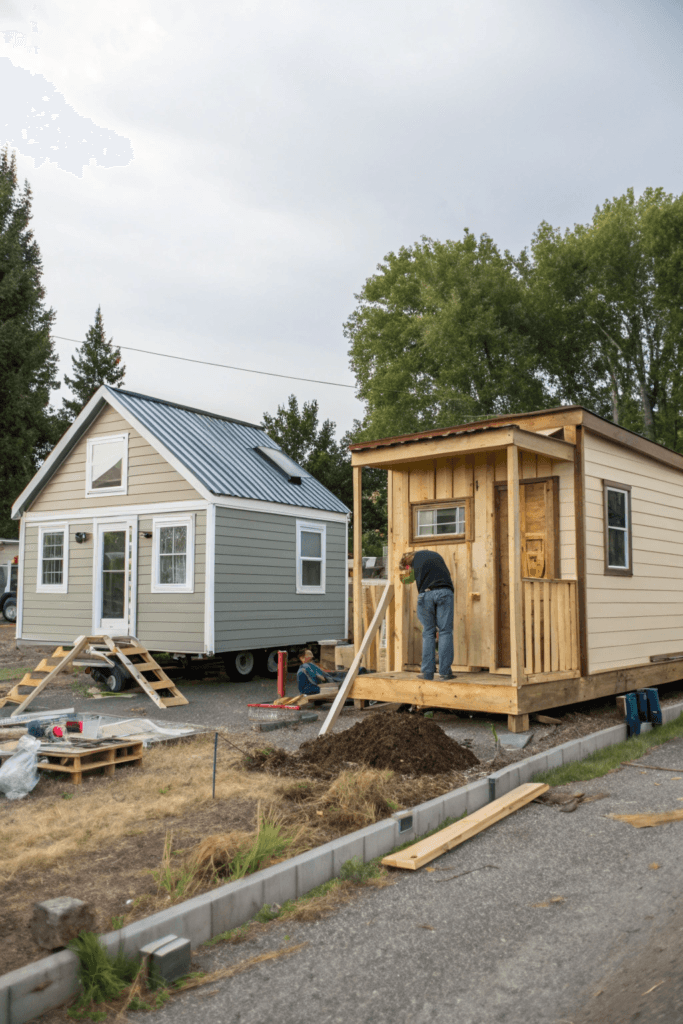
The first big decision is whether to DIY or buy pre-built.
- Pre-Built Tiny HomesThese can range from $30,000 to over $100,000. The exact cost depends on size, design, and features.
- DIY Tiny HomesBuilding a DIY tiny house could cost between $15,000 and $50,000. It’s cheaper compared to hiring professional builders but requires time, tools, and research. Building a tiny home from scratch can take much longer than assembling a pre-built one, with DIY projects often requiring significantly more time and effort.
Pro tip? Always add 10–20% wiggle room for unexpected expenses.
2. Trailer Costs
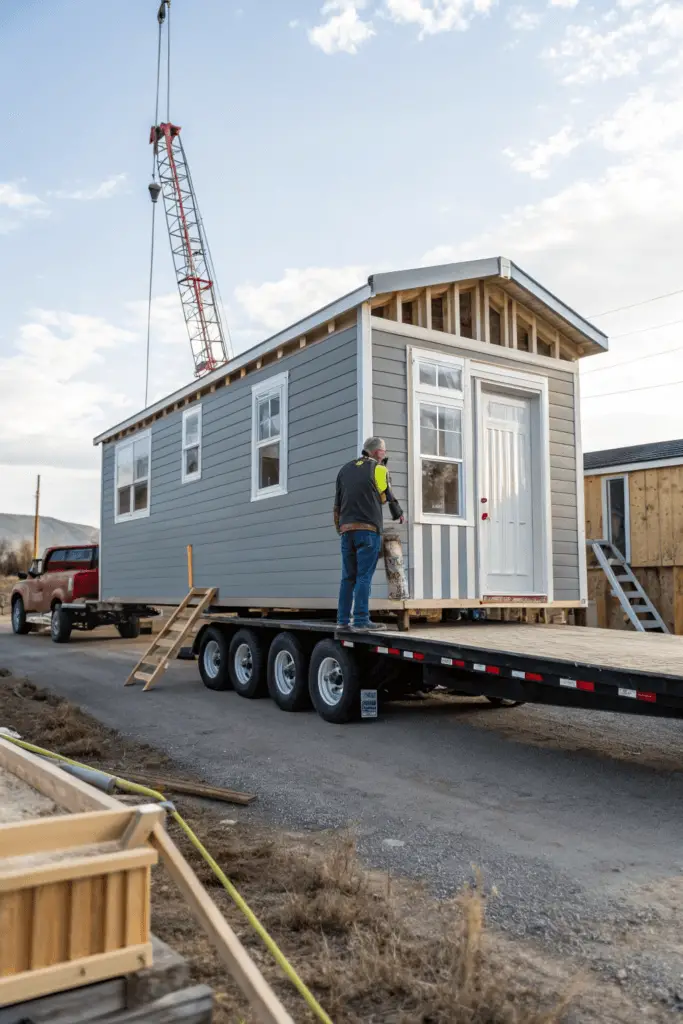
Most tiny homes sit on trailers. This is the foundation, so don’t skimp on quality.
Expect to pay $3,000 to $7,000 for a good trailer. The size and weight capacity you need will affect the price. Mobile tiny houses cost between $50,000 to $76,665 on average, with additional expenses like personal property taxes and the challenge of finding parking spots.
A strong trailer gives your home stability and safety.
3. Materials for Construction
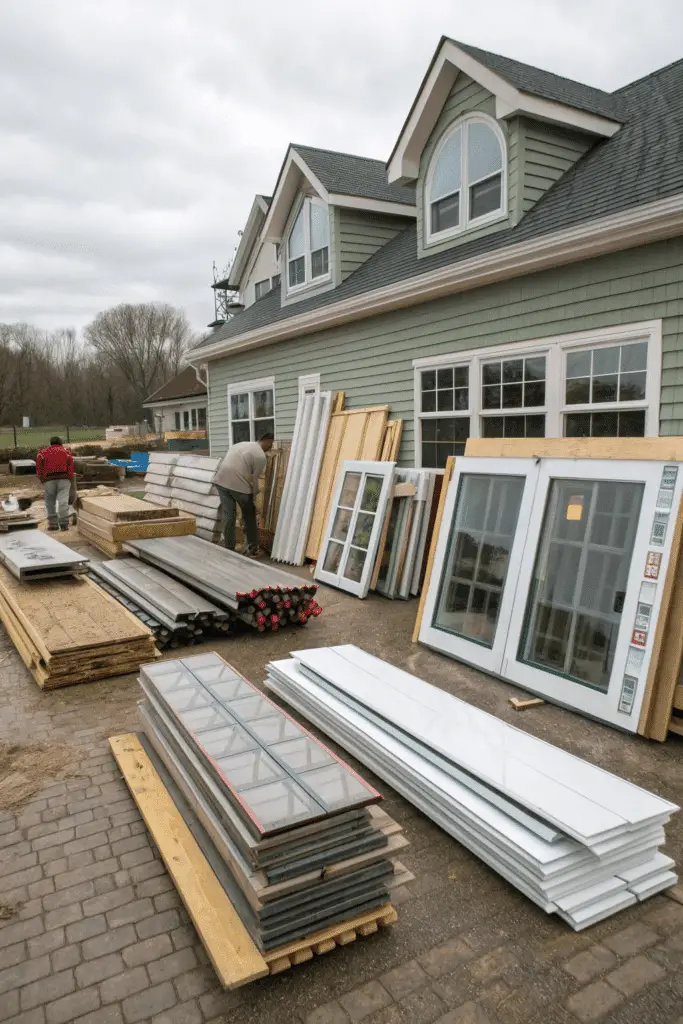
The materials you choose have one of the biggest impacts on the construction cost, significantly affecting the overall budget.
- Basic Materials Siding, windows, roofing, and flooring can cost $8,000 to $25,000. Go for durable options like metal roofing and energy-efficient windows. A poorly made house can lead to long-term problems, so it’s crucial to use quality materials and plan carefully.
- High-End Finishes Want granite counters or custom woodwork? Luxury upgrades can take your budget to the next level.
Need to save here? Find deals on reclaimed wood or secondhand fixtures.
4. Labor Costs
If you’re hiring builders, labor fees will vary.
- Skilled workers can charge $50 to $100/hour
- Full-build services range from $20,000 to $40,000 or more.
Labor costs add up quickly, so keep track of hours worked. When planning your tiny home project, consider the financial and logistical aspects of home building, including costs, permits, and the potential dangers of DIY construction, especially if you lack experience.
5. Appliances and Utilities
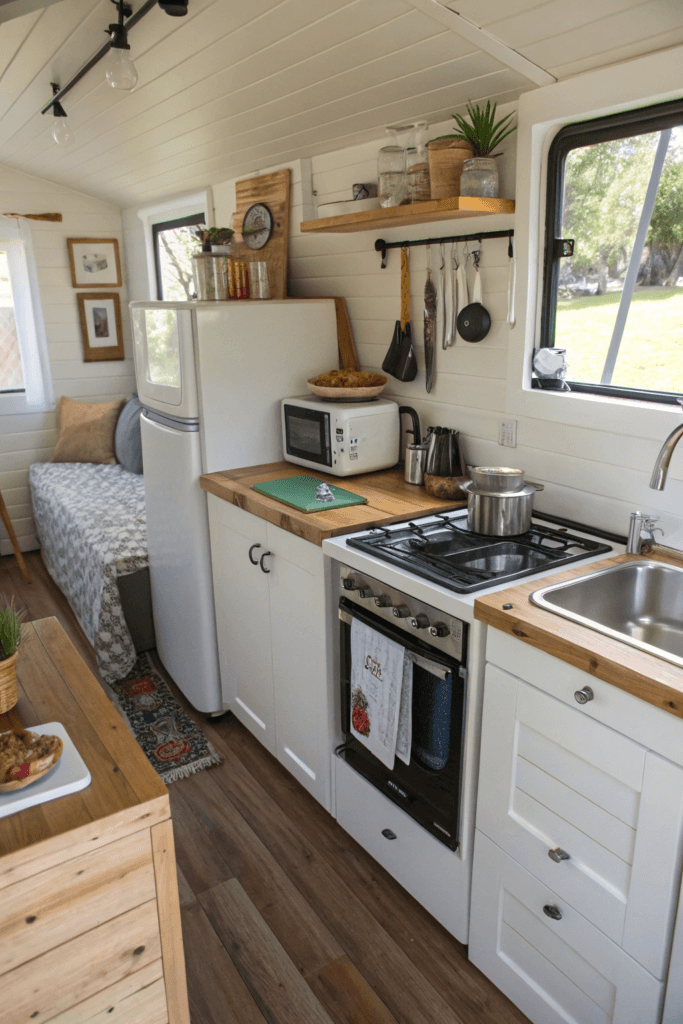
Tiny homes may be small, but they still need appliances.
Plan for essentials like these: Selecting appropriate appliances is crucial, and you may not be able to bring all your old appliances from a larger residence. Consult with a professional builder for recommendations to avoid overcrowding counter space with too many gadgets.
- Kitchen AppliancesStove, fridge, and sink setups range from $2,000 to $5,000.
- Plumbing and Electrical WorkYou’ll spend $3,000 to $7,000 to set up water and power.
- Eco-Friendly OptionsSolar panels or composting toilets can cost extra upfront. Emphasizing energy efficiency, using solar panels and energy-efficient appliances can significantly reduce energy consumption and save money long term.
6. Land and Parking
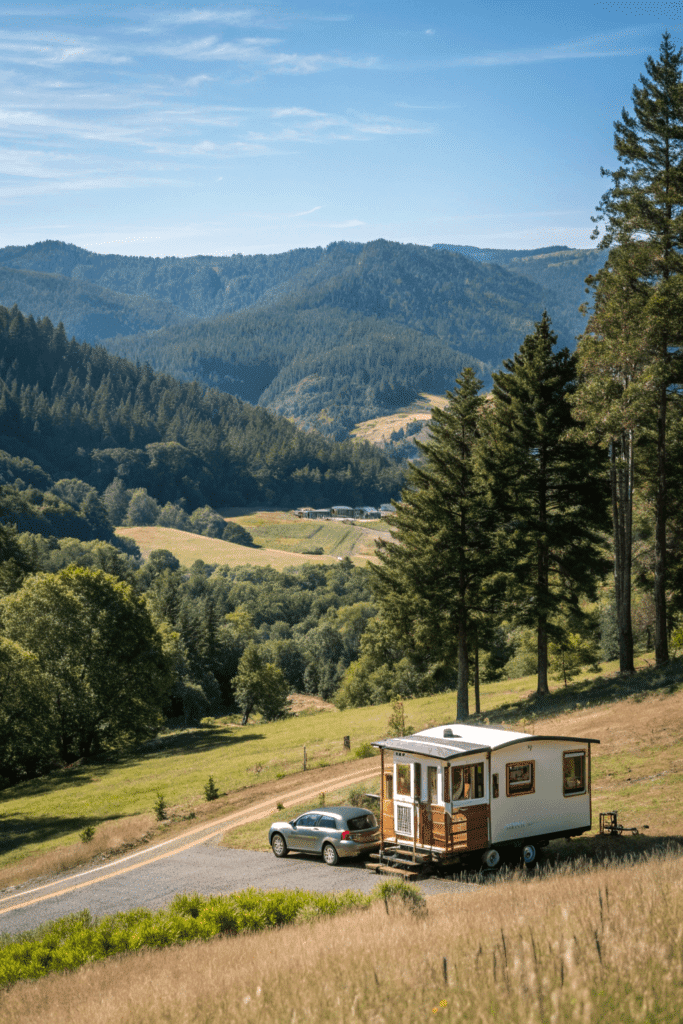
Where will your tiny home sit? This question often surprises people.
- Buying LandLand costs vary depending on location but could easily hit $10,000 to $50,000 or more.
- Renting a SpotMonthly fees range from $100 to $500 for RV parks or tiny home villages.
Check zoning laws before picking a spot. Tiny home parking isn’t allowed everywhere. Additionally, ensure compliance with local building codes to guarantee safety standards and structural integrity. Remember to account for the necessity to pay property taxes, which is an important financial consideration when purchasing and building stationary tiny homes. Building permits for tiny homes typically cost around $1,425, which can significantly impact your overall budget.
7. Transportation Costs
Moving a tiny home isn’t free.
- Hiring a driver could cost $2 to $5 per mile.
- If you need permits for oversized loads, that’s extra.
Factor in these costs if you plan to relocate often. Mobile tiny homes offer affordability and flexibility in location, but they also come with potential vulnerabilities such as susceptibility to damage from different climates and road accidents.
8. Interior Decorating

Making your tiny home feel like home is worth the investment. Crafting a comprehensive floor plan is essential for effective use of space, ensuring that all living areas are well-organized and functional.
Budget around $2,000 to $5,000 for furniture and decor.
Try these hacks to save:
- Look for space-saving furniture.
- Shop thrift stores for unique finds.
- DIY some decor—your wallet will thank you. When moving to a new living space, it is crucial to evaluate existing furniture to ensure it fits both the dimensions and aesthetic of the new home.
12. Customization and Design
– Personalizing Your Tiny Home: Costs and Considerations
One of the benefits of building a tiny home is the ability to customize and design the space to meet your specific needs and preferences. However, customization and design can also impact the cost of a tiny home. For example, adding luxury features such as a bathtub or chandelier can increase the cost of a tiny home. Additionally, the cost of materials and labor can vary depending on the design and features of the home. On average, the cost per square foot of a tiny home can range from $150 to $430, depending on the materials and features used. It’s also important to consider the cost of land and local zoning laws when designing and building a tiny home. By carefully planning and designing your tiny home, you can create a space that is both functional and affordable.
10. Financing Your Tiny House
– Financing Options for Tiny Houses
Financing a tiny house can be a bit tricky, but there are several viable options to consider. Some lenders offer specialized loans tailored for tiny houses, while others may classify them as personal property or recreational vehicles. It’s crucial to explore financing options thoroughly and compare rates and terms before making a decision. Here are some popular financing options for tiny houses: Financing options for tiny homes differ from traditional homes, as many lenders may hesitate to provide land loans, making it essential to explore all available options.
- Personal Loans: These loans can be used to finance the purchase of a tiny house, though they often come with higher interest rates and shorter repayment terms.
- RV Loans: Since many tiny houses are built on wheels, they can qualify as recreational vehicles, making RV loans a practical option.
- Home Equity Loans: If you already own a traditional home, you might be able to use a home equity loan to finance your tiny house.
- Construction Loans: These loans are designed to finance the construction of a tiny house but usually require a larger down payment and have stricter repayment terms.
It’s important to note that financing costs can vary based on the lender, your credit score, and your income situation. Carefully review the terms and conditions of any loan before signing an agreement to ensure it fits your financial plan. By exploring all available financing options, you can find the best solution to make your tiny house dream a reality.
9. Taxes and Legal Fees
You can’t escape taxes, even for a tiny home.
- Property taxes depend on where you live.
- You may also need permits, which cost a few hundred to a few thousand dollars, depending on the area.
Double-check city and state regulations before you start. Purchasing a mobile tiny home comes with the responsibility of paying personal property taxes, similar to those levied on mobile homes, boats, and vehicles.
10. Maintenance Costs
Even tiny homes need regular upkeep.
Set aside $500 to $1,000 a year for repairs. Maintaining a tiny home is relatively affordable, with annual maintenance costs for stationary tiny homes estimated to be around a couple hundred bucks. Keep a toolkit handy—you never know when you might need it.
Bonus Tip: Plan for the Unexpected
Even the best plans can hit snags. That’s why a flexible budget is key.
Add an extra 15% to your total budget to cover surprise costs.
Tiny homes are an investment, but they can offer big rewards.
Final Thoughts
The right planning makes building your dream tiny home easy and fun. Using a tiny home cost calculator ensures no detail gets overlooked.
Start breaking down your numbers today. Your cozy, efficient home is waiting!

